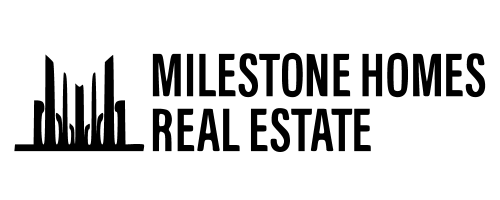Financing your first home in Dubai is one of the most important steps in your property journey. The city’s world-class lifestyle, booming real estate market, and diverse communities make it a top choice for residents and international buyers alike. With the right mortgage plan and financial preparation, owning your dream home in Dubai becomes an achievable milestone.
However, for Dubai first-time homebuyers, one of the biggest challenges is understanding how to arrange financing. From choosing between different Dubai property financing options to meeting home loan eligibility in Dubai, the process can feel overwhelming at first. Many expats also wonder whether they qualify for a UAE mortgage for expats or if there are special rules for home finance for non-residents.
On top of that, there are upfront costs like the down payment for a Dubai home, Dubai Land Department fees, and agent commissions to factor in. In this guide, we’ll simplify the split, explaining everything from mortgage types and eligibility criteria to the mortgage pre-approval process in the UAE, so you can confidently take your first step toward owning a home in Dubai.
Mortgage Options for Financing First Home in Dubai
When it comes to home finance for non-residents and expats, Dubai offers different types of mortgage products:
- Fixed-Rate Mortgages: Monthly payments remain stable throughout the term (usually 5–25 years).
- Variable-Rate Mortgages: Interest rates can go up or down depending on market conditions.
- Sharia-Compliant Mortgages: Instead of paying interest, you pay rent while gradually owning the property. This is an alternative for buyers who prefer Islamic financing.
Choosing between a conventional mortgage and Islamic financing depends on your financial goals and preferences.
Home Loan Eligibility for First-Time Buyers in Dubai
Before applying for a mortgage, it’s important to understand the home loan eligibility in Dubai and what banks look for when approving applications. Most lenders require buyers to be at least 21 years old at the time of application. Additionally, Banks usually ask for proof of a stable monthly salary or business income, as this shows you can comfortably manage your mortgage payments.
Another key factor is your credit score; having a strong repayment history increases your chances of approval and can even help you secure better interest rates. Employment stability also matters, with many banks preferring applicants who have been with the same employer or working in the same industry for at least two years.
For Dubai first-time homebuyers, these criteria might seem strict, but they are designed to ensure you don’t take on more debt than you can handle. If you’re an expat, the same rules generally apply for a UAE mortgage for expats, though some banks may have additional requirements depending on your nationality and income source.
A simple way to prepare is to use a mortgage calculator Dubai, which gives you an estimate of how much you can borrow and what your monthly payments might look like. This helps you plan ahead, assess your budget, and know exactly what kind of property you can afford before starting your home search. Browse our latest off-plan projects in Dubai to find affordable homes that match your budget.
The criteria list:
- Age: Minimum 21 years.
- Income: Proof of stable monthly salary or business income.
- Credit Score: A strong repayment history boosts approval chances.
- Employment: Preferably two years with the same employer or industry.
Tip: Use a mortgage calculator Dubai to estimate how much you can borrow before applying.
Down Payment Rules for Financing First Home in Dubai
One of the most important parts of financing your first home in Dubai is planning for the down payment. For Dubai first-time homebuyers, the UAE Central Bank sets clear rules on how much you need to pay upfront. If the property is valued below AED 5 million, you will typically need to put down at least 20% of the purchase price.
For homes priced above AED 5 million, the first-time buyer down payment percentage rises to 25%. This applies whether you are applying for a UAE mortgage for expats or are a resident buyer. These percentages are part of the Loan-to-Value (LTV) ratios for expats in the UAE, which ensure that buyers have a solid financial commitment before taking on a mortgage.
For first-time buyers, the down payment for Dubai homes depends on the property price:
- 20% minimum for properties under AED 5 million.
- 25% for properties over AED 5 million.
This is the first-time buyer down payment percentage (20–25%) set by UAE mortgage regulations.
Loan-to-Value (LTV) Ratios for Expats in Dubai
When applying for a UAE mortgage for expats, one of the most important things to understand is the Loan-to-Value (LTV) ratio. This simply refers to the percentage of the property’s value that the bank is willing to finance, compared to how much you’ll need to pay as a down payment for a Dubai home.
For properties priced under AED 5 million, most banks in Dubai will finance up to 75% of the property value, leaving you to cover the remaining 25%. If the property is above AED 5 million, the maximum financing usually drops to 65%, which means you’ll need to contribute at least 35% upfront. These rules are part of the UAE Central Bank’s regulations and apply to both residents and non-residents.
For Dubai first-time homebuyers, this is crucial to know because it directly affects your budget and how much savings you’ll need before buying. While the bank covers the majority of the purchase through the mortgage, you must still prepare for the upfront portion, along with additional property buying costs in Dubai, such as DLD fees, trustee charges, and agent commissions.
Banks in Dubai generally finance:
- Up to 75% of the property value for homes under AED 5 million.
- Up to 65% for homes above AED 5 million.
This means you’ll need to cover the remaining cost upfront.
Steps to Apply for a Mortgage
Here’s a simple Dubai first-time homebuyers guide to applying for a mortgage:
- Get Pre-Approval: It shows sellers you’re serious and helps you budget effectively.
- Collect Documents: Passport, Emirates ID, salary certificate, bank statements, and property details.
- Submit Application: Apply through a bank or mortgage broker.
- Property Valuation: The Bank ensures the property is worth the price.
- Final Approval & Offer Letter: Loan terms are confirmed.
Costs of Buying a Home in Dubai
It’s important to note that the down payment is just one part of your upfront costs. You should also budget for Dubai Land Department (DLD) fees, trustee charges, agent commission, and mortgage registration fees. Many buyers underestimate these costs, but they can significantly impact your overall budget.
If you’re not sure how much you need to save, using a mortgage calculator can give you a clear picture of your monthly repayments and how your down payment affects your financing options. Planning ahead for this requirement will make your journey to homeownership smoother.
Beyond the down payment, factor in property buying costs in Dubai:
- Dubai Land Department (DLD) Fee: 4% of property value.
- Trustee Fee: AED 4,000–5,000.
- Agent Commission: 2% of purchase price.
- Mortgage Registration Fee: 0.25% of loan amount.
- Valuation Fee: AED 2,500–3,500.
- Annual Service Charges: Varies by property size and community.
Owning your first home in Dubai is achievable with the right planning. From understanding the mortgage pre-approval process in the UAE to budgeting for DLD and agent fees, every step matters. Whether you’re an expat looking for a UAE mortgage or a non-resident exploring home finance in Dubai, knowing your options will help you make a confident decision.
At Milestone Homes, we guide first-time buyers through the entire journey, from finding the right property to securing the best financing.




